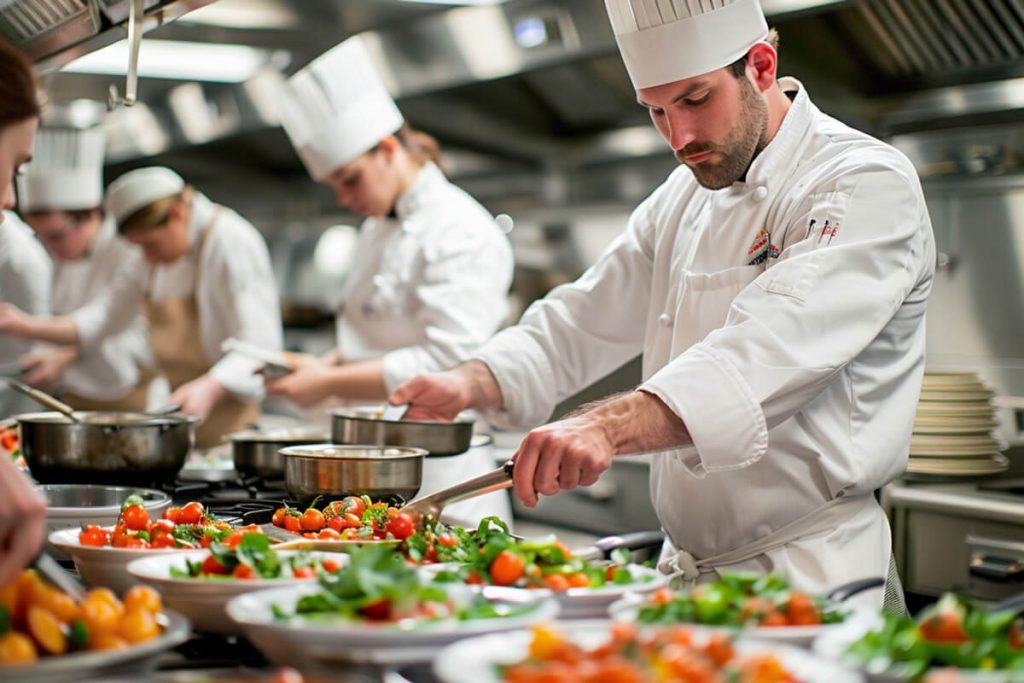The culinary industry offers one of the most rewarding career paths for those passionate about food, creativity, and service. Whether you dream of becoming a professional chef, opening your own restaurant, or running a catering business, formal education can give you the foundation you need to succeed. Today, culinary courses go far beyond knife skills and recipes. They prepare students for the full spectrum of challenges and opportunities that come with a career in the food service industry.
Pathways to Becoming a Professional Chef
The journey to becoming a chef usually begins with a structured culinary program. These can range from diploma and certificate courses to full-fledged degree programs offered by hospitality schools and universities. Students typically learn essential kitchen techniques, food safety, flavour development, and ingredient sourcing. Programs also introduce world cuisines, from French and Italian to Asian and Latin American traditions, to give aspiring chefs a broader understanding of global cooking methods.
Hands-on experience is a core part of these programs. Whether through simulated kitchen environments or real-world apprenticeships, students learn to manage time, stress, and quality control. Many schools partner with restaurants or hotel kitchens to offer internships that provide valuable industry exposure.
More advanced programs may cover topics such as kitchen management, cost control, and sustainability practices. These are essential for those seeking to advance to head chef positions or manage large-scale food production operations.
Training for Restaurant Ownership
Owning a restaurant requires more than a love for food. It demands a solid grasp of business strategy, customer service, and operations management. Education programs tailored for future restaurateurs often blend culinary arts with hospitality management and entrepreneurship training.
Courses typically cover menu engineering, restaurant branding, marketing, and financial planning. Students learn how to navigate licensing, health regulations, and supplier contracts, ensuring they are prepared for the legal and logistical side of running a food business. Some programs include modules on interior design and layout planning, recognising that ambience plays a major role in a restaurant’s success.
Students also work on real case studies, creating business plans for their dream restaurants and presenting them to industry professionals. This practical, project-based learning approach helps bridge the gap between classroom theory and real-world application.
Catering Services and Event Planning
Catering requires a slightly different skill set, with a stronger focus on logistics, portion control, and client communication. Catering professionals must be adaptable, as each event can bring new challenges. Courses in catering often include training in batch cooking, menu flexibility, food transport, and timing coordination.
Students are also introduced to event management, learning how to work with clients to plan everything from intimate dinners to large corporate functions or weddings. Understanding dietary restrictions, managing waitstaff, and setting up mobile kitchens are all part of the curriculum.
Some catering programs incorporate business education, guiding students in building scalable service models that can handle multiple events or expand into new markets. The goal is to turn great cooks into successful entrepreneurs with the ability to deliver consistent quality on a larger scale.
Specialist Courses to Refine Skills
While general culinary and hospitality programs offer a strong base, many professionals choose to specialise in specific techniques or cuisines. Short courses or masterclasses are an excellent way to deepen your expertise in areas such as pastry arts, wine pairing, regional cooking, or grilling.
One excellent option for those interested in outdoor cooking or adding a distinctive element to their culinary portfolio is the corso barbecue. These barbecue courses teach the principles of live-fire cooking, meat preparation, smoke control, and presentation. They are ideal for chefs, caterers, or enthusiasts who want to master this timeless cooking method and incorporate it into their offerings.
A Recipe for a Delicious Future
Choosing a career in the culinary world is not just about learning how to cook; it’s about discovering a passion for the art of cooking. It is about understanding people, managing operations, and delivering memorable experiences. With the right education and specialised training, anyone with passion and discipline can turn their love of food into a thriving career or business.

